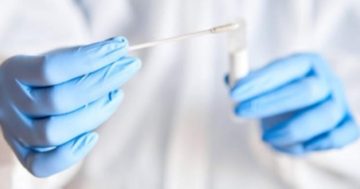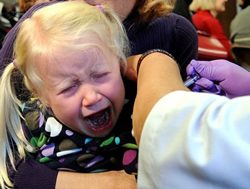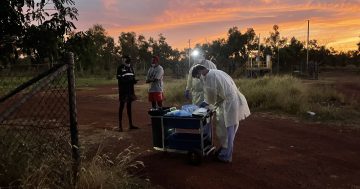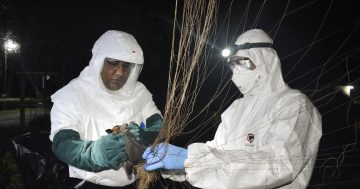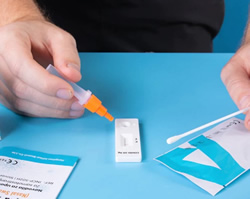 The circulation of immunity-evading Omicron subvariants has seen NSW Health reduce the COVID-19 reinfection period from 12 weeks down to four weeks.
The circulation of immunity-evading Omicron subvariants has seen NSW Health reduce the COVID-19 reinfection period from 12 weeks down to four weeks.
NSW Chief Health Officer Dr Kerry Chant said the reduced reinfection period, which follows advice from the Australian Health Protection Principal Committee, was due to the latest subvariants of Omicron, BA.4 and BA.5.
Dr Chant said people who had previously tested positive for COVID-19 would be required to retest if they developed symptoms again 28 days or more after their isolation ended, and follow the relevant health advice if they tested positive.
She said people who tested positive again would be reported and managed as new cases.
“The Omicron BA.4 and BA.5 subvariants are circulating widely in NSW,” Dr Chant said.
“They are more able to evade immunity gained from previous infection and vaccination reinfection is more likely and possible just weeks after a prior infection,” she said.
“We’re urging people who have recently had COVID-19, even if they left isolation in the past four weeks, not to be complacent.”
Dr Chant also urged members of the community who are now eligible for a second COVID-19 booster dose to access it as soon as possible, ahead of an expected peak in cases in the coming weeks.
She said the expansion of the winter booster program meant people aged 50 to 64 years were now recommended to receive a second (or winter) booster dose, which was available to everyone aged 30 and over.
“With the rising number of COVID-19 cases in the community driven by a wave of BA.4 and BA.5 infections, it is vital people are up to date with their COVID-19 vaccinations, as this will provide the best protection against severe illness from COVID-19,” the Chief Health Officer said.
She encouraged people to take small steps to reduce the risk for more vulnerable members of the community, such as staying home if unwell, wearing a mask in public indoor places, gathering outdoors, practising good hygiene, and taking a rapid antigen test before visiting vulnerable loved ones.


